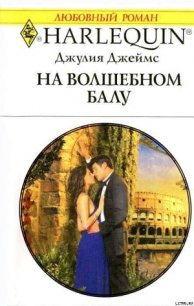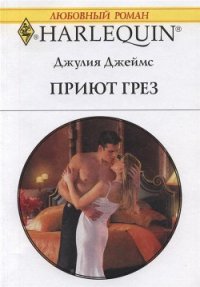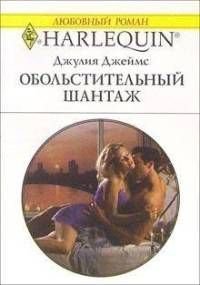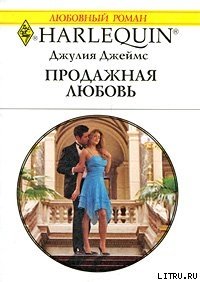Julia Ward Howe - Richards Laura E. (бесплатная регистрация книга TXT) 📗
"Peace meeting at the Club. Read in Greek first part of the eighth chapter of Matthew; the account given of the centurion seems very striking in the Greek. The contrast of his Western mind with the Eastern subtleties of Jew and Greek seems to have struck Christ. He supposed Christ's power over unseen things to be like his own control over things committed to his authority. Then Christ began, perhaps, to see that the other nations of the world would profit by his work and doctrine before his Jewish brethren."
"My first presidency at the New England Woman's Club.... I do not shine in presiding over a business meeting and some others can do much better than I. Still I think it best to fulfil all expected functions of ordinary occasions, living and learning."
"... Negro Christianity. It is something of a very definite and touching character—all forgiving, all believing, making a decided religious impression of its own—the heart so ripe, the intellectual part so little made out, like a fruit which might be all pulp and no fibre."
"On Sunday we bring back the worn and dim currency of our active life to be redeemed by the pure gold of the Supreme Wisdom. I bring to church my coppers and small pieces and take away a shining gold piece. Self is the talent buried in the napkin no matter with how much of culture and natural capacity. Till we get out of self we are in the napkin. Hospitable entertainment of other people's opinions, brotherly promotions of their interests—these acts make our five talents ten in use to others and in enjoyment and profit to ourselves...."
"Christ's teaching about marriage. Its tender and sacred reciprocity. Adultery among the Jews was only recognized as crime when committed by a woman. The right of concubinage was too extensive to bring condemnation for unchastity. The man might not steal another man's wife, but any woman's husband might have intercourse with other women. Christ showed how men did offend against this same law which worked so absolutely and partially against women. An unchaste thought in the breast of the man infringed the high law of purity. This teaching of the tender mutual obligations of married life was probably new to many of his hearers.
"The present style of woman has really been fashioned by man, and is only quasi feminine.
"Peace meeting at Mystic, Connecticut. Spoke morning and afternoon, best in the morning. The natural unfolding of reform. 'His purposes will ripen fast'—Watts's verse. Providence does not plant so as to gather all its crops in one day. First the flowers, then the fruits, then the golden grain.
"John Fiske's lecture, first in the course on the theory of Evolution.... Did not think the lecture a very profitable one, yet we must be willing that our opposites should think and speak out their belief."
In the spring of 1872 she went to England, hoping to hold a Woman's Peace Congress in London. She also hoped to found and foster "a Woman's Apostolate of Peace." These hopes were not then to be fulfilled: yet she always felt that this visit, with all its labors and its disappointments, was well worth while, and that much solid good came of it, to herself and to others.
We have seen her in London as a bride, enjoying to the full its gayeties and hospitality, as bright a vision as any that met her eyes, with a companion to whom all doors opened eagerly. This was the picture of 1843; that of 1872 is different, indeed.
A woman of middle age, quiet in dress and manner, with a serene and constant dignity; a face in which the lines of thought and study were deepening year by year; eyes now flashing with mirth, now tender with sympathy, always bright with the "high resolve and hardihood" for which, but a few years before, she had been sighing: this was the woman who came to London in 1872, alone and unaided; who, standing before the Dark Tower of established Order and Precedent, might say with Childe Roland,—
"Dauntless the slug horn to my lips I set,
And blew."
She spoke at the banquet of the Unitarian Association. "The occasion was to me a memorable one." She hired the Freemasons' Tavern and preached there on five or six successive Sundays.
"My procedure was very simple,—a prayer, the reading of a hymn, and a discourse from a Scripture text.... The attendance was very good throughout, and I cherished the hope that I had sown some seed which would bear fruit hereafter."
She was asked to address meetings in various parts of England, speaking in Birmingham, Manchester, Leeds, Bristol, Carlisle, with good acceptance. In Cambridge she talked with Professor J. R. Seeley, whom she found most sympathetic. She was everywhere welcomed by thoughtful people, old friends and new, whether or no they sympathized with her quest.
"June 9. My first preaching in London. Worked pretty much all day at sermon, intending, not to read, but to talk it—for me, a difficult procedure. At 4.30 P.M. left off, but brain so tired that nothing in it. Subject, the kingdom of heaven.... Got a bad cup of tea—dressed (in my well-worn black silk) and went to the Drawing-Room at Freemasons' Tavern. God knows how I felt. 'Cast down but not forsaken.'... I got through better than I feared I might. Felt the method to be the right one, speaking face to face and heart to heart."
"June 10. Small beer going out of fashion leaves women one occupation the less. Fools are still an institution; and will remain such."[71]
"June 16.... A good attendance in spite of the heat.... Agonized over my failure to come up to what I had designed to do in the discourse."
"June 18.... Saw the last of my dear friend E. Twisleton, who took me to the National Gallery, where we saw many precious gems of art.... At parting, he said: 'The good Father above does not often give so great a pleasure as I have had in these meetings with you.' Let me enshrine this charming and sincere word in my most precious recollection, from the man of sixty-three to the woman of fifty-three."
"June 27. Left Leeds at 7 A.M., rising at 4.30.... To Miss [Frances Power] Cobbe's, where met Lady Lyall, Miss Clough, Mrs. Gorton, Jacob Bright, et al. Then to dinner with the dear Seeleys. An unceremonious and delightful meal. Heart of calf. Then to John Ridley's.... Home late, almost dead—to bed, having been on foot twenty hours."
"July 4.... Saw a sight of misery, a little crumb of a boy, barefoot, tugging after a hand-organ man, also very shabby. Gave the little one a ha'penny, all the copper I had. But in the heartache he gave me, I resolved, God helping me, that my luxury shall henceforth be to minister to human misery, and to redeem much time and money spent on my own fancies, as I may...."
She had been asked to attend two important meetings as American delegate: a peace congress in Paris, and a great prison reform meeting in London.
The French meeting came first. She crossed the Channel, reaching Paris in time to attend the principal seance of the congress. She presented her credentials, asked leave to speak, and was told "with some embarrassment" that she might speak to the officers of the society, when the public meeting should be adjourned! She makes no comment on this proceeding, but says, "I accordingly met a dozen or more of these gentlemen in a side room, where I simply spoke of my endeavors to enlist the sympathies and efforts of women in behalf of the world's peace."




